
George Ainsworth. (1924-1985)
The late George Ainsworth was instrumental in the success of group purchasing operations at 10 state, regional and municipal hospital associations. As a leading executive during the 1960s and 1970s within Hospital Bureau Inc. (HBI), regarded as the nation’s first commercial group purchasing organization by its founding in 1911, Ainsworth helped coordinate buying power by ushering in such concepts as committed-volume contracting, one member-one vote philosophy and vendor administrative fee collection by GPOs.

Charles Auslander
As a Midwestern hospital purchasing director in the late 1930s and early 1940s (Chicago’s Michael Reese Hospital), the late Charles Auslander was an early advocate of product standardization, due in large part to material conservation efforts during World War II. Auslander joined Joint Purchasing Corp. (JPC) as executive director in the mid-1940s and helped to build JPC as one of the forerunners of contemporary GPOs. During his three decades of service at JPC, Auslander developed one of the earliest group purchasing programs for laboratory products, and he was particularly skilled in dealing with CEOs, COOs and hospital department managers to consolidate purchasing volumes.
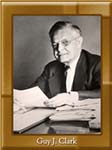
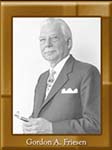
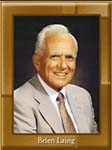

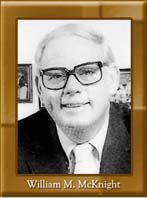
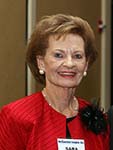
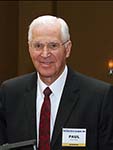
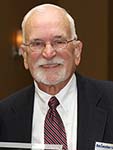
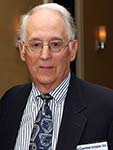
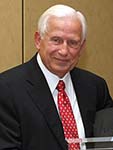
 Future Famers Class of 2020 - Left to right:
Future Famers Class of 2020 - Left to right: Future Famers Class of 2019 - Left to right: Geisinger Health’s Jun B. Amora, Memorial Health System’s Erin M. Bromley, Avera
Health’s Sara M. Henderson, Mid-America Service Solutions’ Jessica Rinderle and Dartmout-Hitchcock
Health’s Sidney L. Hamilton.
Not pictured: The University of Kansas Health System’s Brian A. Dolan.
Future Famers Class of 2019 - Left to right: Geisinger Health’s Jun B. Amora, Memorial Health System’s Erin M. Bromley, Avera
Health’s Sara M. Henderson, Mid-America Service Solutions’ Jessica Rinderle and Dartmout-Hitchcock
Health’s Sidney L. Hamilton.
Not pictured: The University of Kansas Health System’s Brian A. Dolan. Future Famers Class of 2018 - Standing (left to right): Troy Compardo, Amy Chieppa and Andy Leaders. Not pictured: Ryan Rotar.
Future Famers Class of 2018 - Standing (left to right): Troy Compardo, Amy Chieppa and Andy Leaders. Not pictured: Ryan Rotar. Future Famers Class of 2017 - Standing (left to right): Mark Growcott, Ph.D., Karen Kresnik, R.N., and Ben Cahoy. Not pictured: Derek Havens and Christy Crestin.
Future Famers Class of 2017 - Standing (left to right): Mark Growcott, Ph.D., Karen Kresnik, R.N., and Ben Cahoy. Not pictured: Derek Havens and Christy Crestin. Future Famers Class of 2016 - Standing (left to right): Erik Walerius, Nisha Lulla and Rob Proctor. Not pictured: Jimmy Henderson, Kate Polczynski and Baljeet Sangha.
Future Famers Class of 2016 - Standing (left to right): Erik Walerius, Nisha Lulla and Rob Proctor. Not pictured: Jimmy Henderson, Kate Polczynski and Baljeet Sangha.  Future Famers Class of 2015 - Standing (left to right): University of Chicago’s Eric Tritch, Ochsner Health’s Will Barrette, Providence Health’s Justin Freed, Mercy Health/St. Rita’s Jason Hays, Parkview Health’s Donna Van Vlerah and Texas Health’s Nate Mickish (back and to the right).
Future Famers Class of 2015 - Standing (left to right): University of Chicago’s Eric Tritch, Ochsner Health’s Will Barrette, Providence Health’s Justin Freed, Mercy Health/St. Rita’s Jason Hays, Parkview Health’s Donna Van Vlerah and Texas Health’s Nate Mickish (back and to the right). Randy V. Bradley, Ph.D., CPHIMS, FHIMSS, Associate Professor of Supply Chain Management and Information Systems, University of Tennessee Knoxville, Haslam College of Business, Department of Supply Chain Management
Randy V. Bradley, Ph.D., CPHIMS, FHIMSS, Associate Professor of Supply Chain Management and Information Systems, University of Tennessee Knoxville, Haslam College of Business, Department of Supply Chain Management Mayo Clinic’s Jim Francis accepts the 2017 Dean S. Ammer Award for Supply Chain Excellence, on behalf of his Ammer Level 5 Supply Chain Organization.
Mayo Clinic’s Jim Francis accepts the 2017 Dean S. Ammer Award for Supply Chain Excellence, on behalf of his Ammer Level 5 Supply Chain Organization. Michael Louviere accepts the inaugural Dean S. Ammer Award for Supply Chain Excellence on behalf of his Supply Chain team at Ochsner Health System.
Michael Louviere accepts the inaugural Dean S. Ammer Award for Supply Chain Excellence on behalf of his Supply Chain team at Ochsner Health System.